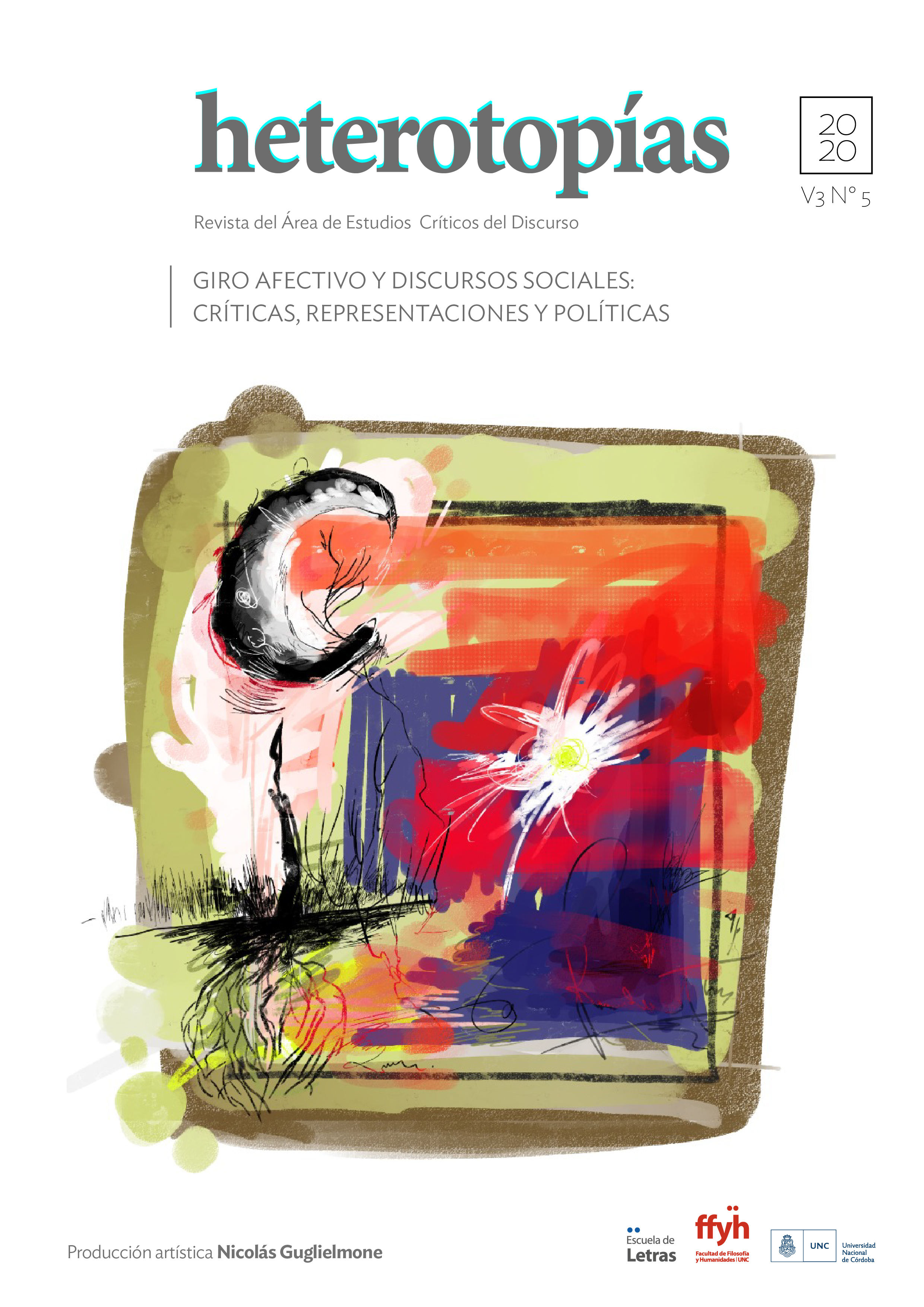Smile!
Main Article Content
Abstract
In this text, the feminist writer Sara Ahmed suggests thinking about the limits of positive thinking. Making use of black feminisms and feminisms of colour as archives of anger, the author examines the possible responses to the injunction to feel in a certain way during the actions taken against situations of oppression.
Downloads
Article Details

This work is licensed under a Creative Commons Attribution-NonCommercial-ShareAlike 4.0 International License.
Those authors who have publications with this journal, accept the following terms: Those authors who have publications with this journal, accept the following terms:
a. The authors will keep their copyright and guarantee to the journal the right of first publication of their work, which will be simultaneously subject to the Creative Commons Attribution - Non-Commercial - Share Alike (by-nc-sa) Attribution License; no commercial use of the original work or any derivative works is allowed, the distribution of which must be done with a license equal to the one that regulates the original work.
b. Authors may adopt other non-exclusive license agreements for the distribution of the published version of the work (e.g., deposit it in an institutional telematic archive or publish it in a monographic volume) provided that the initial publication in this journal is indicated.
c. Authors are allowed and recommended to disseminate their work through the Internet (e.g. in institutional telematic archives or on their website) before and during the submission process, which may lead to interesting exchanges and increase the number of citations of the published work. (See The effect of open access).
How to Cite
References
Ahmed, S. (2010). The Promise of Happiness. Durham and London: Duke University Press.
Ahmed, S. (2014). Selfcare as Warfare. Recuperado de https://feministkilljoys.com/2014/08/25/selfcare-as-warfare/
Ahmed, S. (2016). Fascism as Love. Recuperado de https://feministkilljoys.com/2016/11/09/fascism-as-love/
Ahmed, S. (2017). Queer Fatalism. Recuperado de https://feministkilljoys.com/2017/01/13/queer-fatalism/
Ahmed, S. (2018). Vivir una vida feminista. Barcelona: Bellaterra.
Ahmed, S. (2019). La promesa de la felicidad. Una crítica cultural al imperativo de la alegría. Presentación de Nicolás Cuello. Ciudad Autónoma de Buenos Aires: Caja Negra.
Braidotti, R. (2016). Don’t agonize, organize! Recuperado de https://conversations.e-flux.com/t/rosi-braidotti-don-t-agonize-organize/5294
Cano, V. (2018) “Solx no se nace, se llega a estarlo. Ego-liberalismo y auto-precarización afectiva”. En Nijensohn, M. (Comp.). Los feminismos ante el neoliberalismo. Adrogué: La Cebra.
Ehrenreich, B. (2018). Sonría o muere. La trampa del pensamiento positivo. Madrid: Turner Noema.
Firestone, S. (1976). La dialéctica del sexo. En defensa de la revolución feminista. Barcelona: Kairós.
Friedan, B. (2009). La mística de la feminidad. Madrid: Cátedra.
hooks, b. (2000). Feminist Theory: from Margin to Centre. Londres: Pluto Press.
Hochschild, A. (2003). The Managed Heart: Commercialization of Human Feeling. Berkeley: University of California Press.
Lorde, A. (1997). The Cancer Journals. San Francisco: Aunt Lute Books.
Lorde, A. (2003). La Hermana, la extranjera. Artículos y conferencias. Madrid: Horas.
Millbank, L. (2013). The scope of action: smiling, smile “strikes” and individual action. Recuperado de https://radtransfem.tumblr.com/post/40249024485/the-scope-of-action-smiling-smile-strikes-and
Muñoz, E. (1999). Disidentifications: Queers of Color and the Performance of Politics. Minneapolis, MN: University of Minnesota Press.
Curzer, M. (2017). How to #StayOutraged Without Losing Your Mind. Self-Care Lessons for the Resistance. Recuperado de https://medium.com/the-coffeelicious/how-to-stayoutraged-without-losing-your-mind-fc0c41aa68f3#.vwyqsrwvr
Muñoz, J.E. (1999). Disidentifications; Queers of Color and the Performance of Politics. Minnesota: University of Minnesota Press.
Smith, V. (2016). Smiling Slaves in a Post-A Fine Dessert World: Figuring Out That Intelligent People Can Disagree. Recuperado de https://www.kirkusreviews.com/news-and-features/articles/smiling-slaves-post-fine-dessert-world/
West Savali, K. (2017). The Radical Uses of Anger: All White Women Aren’t the Enemy, but White Supremacy Always Is. Recuperado de https://www.theroot.com/the-radical-uses-of-anger-all-white-women-are-not-the-1791727529
